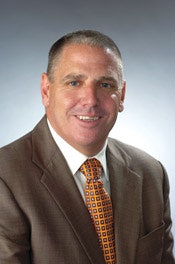It happens all the time in business: After working for a company over a long period of time, an employee, believing that he or she can do things better or at least make more money, leaves to start his or her own business.

It happens all the time in business: After working for a company over a long period of time, an employee, believing that he or she can do things better or at least make more money, leaves to start his or her own business. When this happens in the health and fitness industry, especially when the former employee has dealt with customers on a personal basis, it is natural that some of those customers would want to leave their current facility and continue working with the former employee at his or her new facility.
Such behavior is so natural, in fact, that the courts allow employers who fear this kind of future competition to protect themselves by inserting non-compete clauses in their employees' contracts. But what happens with at-will employees who do not have employment contracts? That was the question in PTSI, INC. v. Cole Haley, Anthony Piroli and Evolution Sports Institute [2013 PA Super 130].
DEPARTING TRAINERS
Power Train Sports Institute, which provides sports training to professional and youth athletes, employed Cole Haley and Anthony Piroli at its Wexford, Pa., facility as its director of operations and as a personal trainer, respectively. While still employed by PTSI, Haley and Piroli decided to open their own sports training facility, and before they resigned to open Evolution Sports Institute, they began informing specific clients that they were starting their own business.
Both Haley and Piroli were at-will employees, which meant they were not subject to any non-compete, nondisclosure or non-solicitation agreements. In response to the creation of ESI, however, PTSI filed suit against Haley and Piroli claiming breach of duty of loyalty, as well as breach of fiduciary duty of loyalty. The trial court granted Haley and Piroli's motion for summary judgment, but PTSI appealed the decision.
On appeal, the Superior Court of Pennsylvania first examined PTSI's breach of duty of loyalty claim against Haley and Piroli. According to PTSI, under Pennsylvania law, Haley and Piroli owed PTSI a duty of undivided loyalty while employed by PTSI. It claimed that the employees breached that duty by improperly soliciting PTSI's clients. In support of this claim, PTSI pointed to the fact that nearly all of ESI's initial clientele were former PTSI clients whom Haley and Paroli had recruited. PTSI also noted that prior to leaving, Haley and Piroli scheduled appointments for PTSI's clients at ESI for the week of its startup. Text messages attached to PTSI's motion for summary judgment demonstrated that Piroli was cautious in dealing with clients just days before resigning from PTSI, but this evidence failed to sway the court.
The claim was rejected as the court noted that in Pennsylvania, the solicitation of customers and the use of customer lists by employees is permissible unless there is a break of an express contract or violation of some confidence. In particular, there must be some element of fraud or trade secrecy involved. The court found that Haley and Piroli did not breach an express contract or violate some confidence, nor were they subject to a restrictive covenant, which could have been enforced to prevent them from competing with PTSI. Therefore, the court found they still retained the right to compete against PTSI, including the right to solicit PTSI's customers. PTSI also failed to present any evidence that its customer list was a trade secret, the product of special work on the part of PTSI, or that Haley and Piroli misappropriated customer names and addresses in violation of a confidential relationship or an express contract.
The court also rejected PTSI's breach of fiduciary duty claim against Haley. PTSI argued that as its most senior manager at the Wexford facility, Haley breached his fiduciary duty by soliciting PTSI's clients and removing approximately 40 of PTSI's client training files prior to his departure. In rejecting this argument, the court held that Haley's status as manager of the Wexford facility did not subject him to a fiduciary duty, as this law is generally applicable to officers and directors of a company, not managers.

NOT-SO-FRIENDLY COMPETITION
It is normal for an employee to leave his or her job to start a separate business in the same industry as he or she currently works. When this happens, and when the former employee has dealt with customers on a personal basis, it is also natural that some of those customers will leave their current facility and continue working with the former employee at his or her new facility. Since the courts allow such competition and salutation of customers, it is important that health and recreation employers protect themselves by requiring employees - even at-will employees - to sign a non-competition or covenant not-to-compete clause when the employee is hired.
































